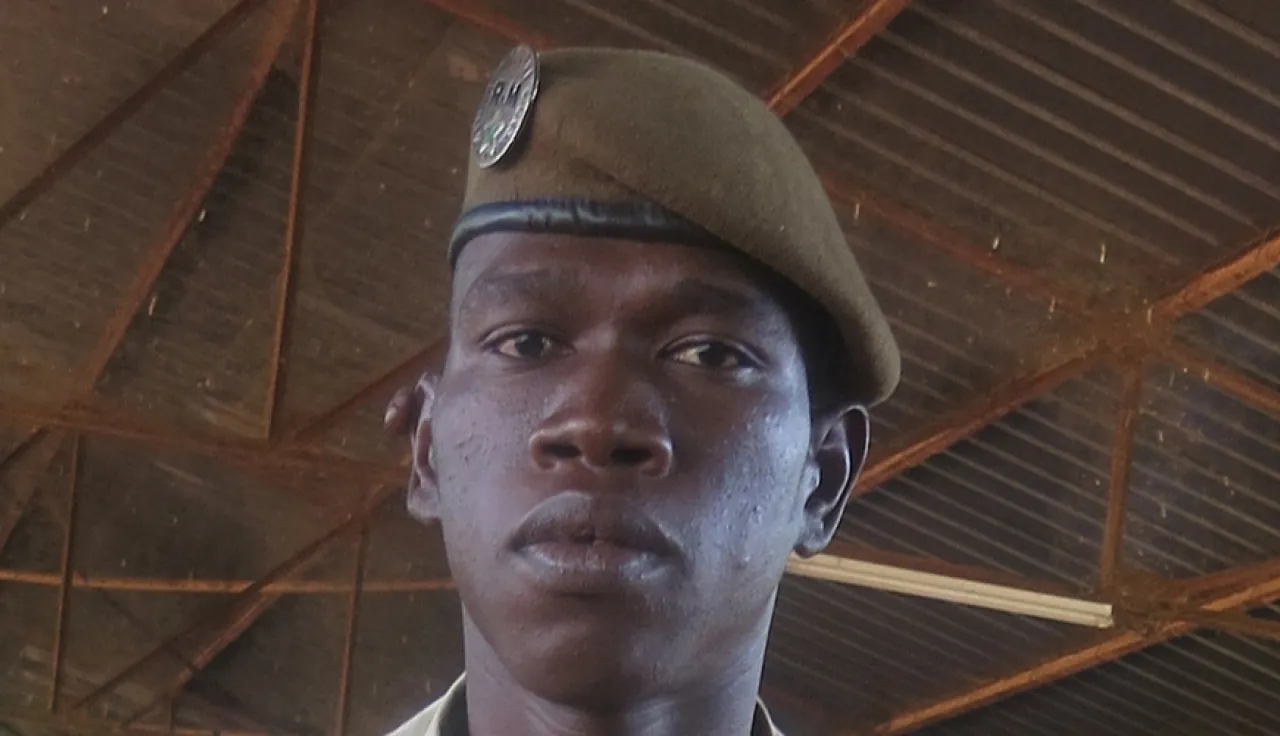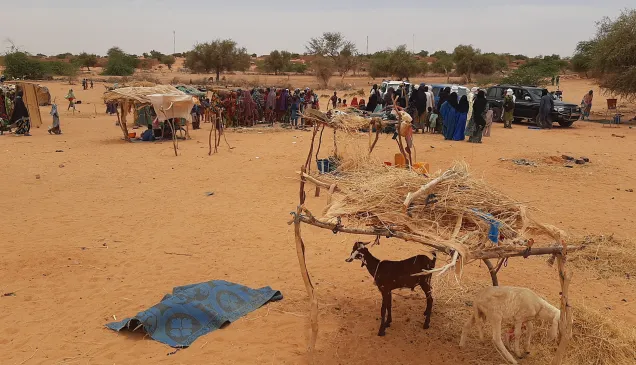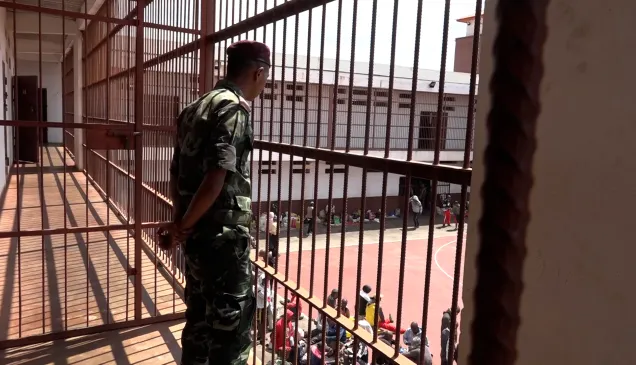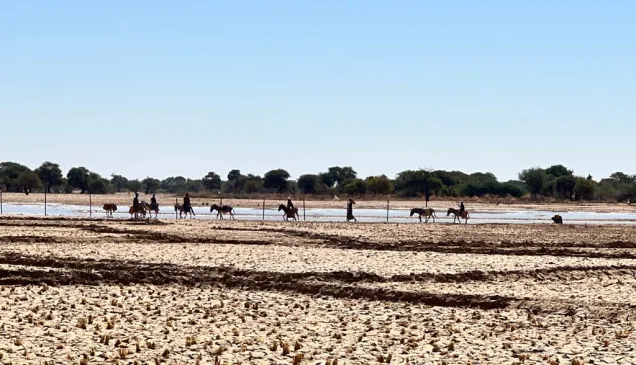Mali: ICRC visits essential during conflicts, says ex-detainee

Lamine Follé is a 33-year-old soldier now serving with the 3rd company of the Malian National Guard. But in 2012 he was captured by an armed group during fighting in the northern part of the country. During his time as a prisoner, ICRC delegates put him back in touch with his family. Years later, we caught up with him at a training session for the military in international humanitarian law, and he told us about that difficult period in his life.
In 2012 Lamine Follé was in the 6th Meharist unit – a detached mobile intelligence and security unit operating in remote areas where the population was nomadic. He was taken prisoner in the violent clashes between the Malian army and armed groups. "I will never forget the day we were captured. We were moved somewhere remote and held for months on end. As we were being taken there, I was sure I was going to die," he said.
But in May that year, the detainees received an unexpected visit from an ICRC team. "When I saw them arrive, my heart leapt. I knew they must be coming to see us: no one had been before. We'd been in that place for over two months with no news of our families and not a single visit." During the visit, delegates registered the detainees and took hand-written messages from them to give to their families. "I wrote Red Cross messages to my father, who was living near Bamako, and my wife, who was living in Gao. Another ICRC team came back later and brought me their replies. It was then that I realized everyone had thought me dead."

Lamine Follé talks to an ICRC delegate during training in international humanitarian law in Sikasso. CC BY-NC-ND / ICRC
Because of a lack of resources, conditions were tough. Lamine remembers that "the armed group's resources were limited. We had to make do with what they could give us. They shared what they had, but it wasn't enough." Visibly moved, he added: "On each visit the ICRC delegates asked us about the living conditions and how we were being treated. They also gave us food and hygiene kits, which really got us through."
Medical care was given to one of his friends: "One of us was seriously ill. After talking to our guards, a delegate got authorization to have the sick man moved to Niamey, in Niger, where he could be treated." He survived. "He's alive, and I often talk to him about it. I don't know what would've happened to him if the ICRC hadn't looked after him."
Lamine and his fellow soldiers were released in September 2012 and they returned to Bamako. They are convinced that the ICRC saved their life. "We had no identity documents other than the registration cards which the delegates had given us. These documents were the only proof of our existence," he said. "I will always be grateful to the ICRC. I think that their visits are essential to people held in conflicts."



